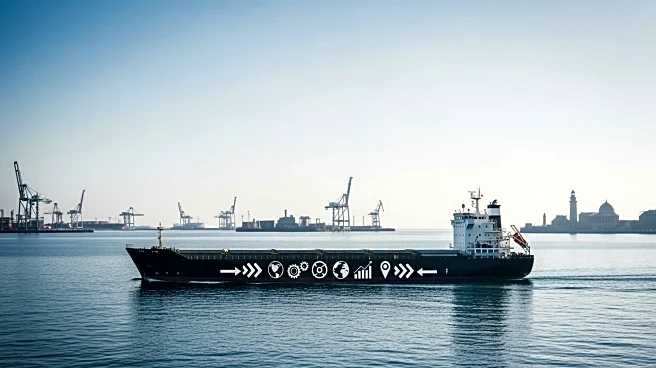What's Happening?
Shipowners are taking steps to avoid new port fees imposed by the U.S. and China, targeting ships built, owned, or operated by companies in these countries. Companies like Pacific Basin Shipping are expanding operations in Singapore and transferring vessels
to the Singapore registry to mitigate exposure. The tariffs are expected to disrupt the shipping industry, contributing to higher freight rates and volatility. Publicly traded companies face uncertainties regarding ownership rules, as they lack detailed information on individual shareholders.
Why It's Important?
The restructuring efforts by shipowners reflect the broader impact of geopolitical tensions on global trade and shipping. The tariffs add complexity to international shipping operations, potentially increasing costs and affecting supply chains. Companies are seeking ways to navigate these challenges, which may lead to shifts in shipping routes and operational strategies. The situation highlights the interconnectedness of global trade and the influence of political decisions on economic activities.
What's Next?
Shipowners may continue to restructure their operations, seeking clarity from authorities on ownership rules and exploring alternative routes to avoid tariffs. The industry may experience increased volatility as companies adjust to new regulations. Stakeholders, including governments and trade organizations, may engage in discussions to address the impact of tariffs and explore solutions to minimize disruptions in global shipping.
Beyond the Headlines
The situation raises questions about the long-term implications of geopolitical tensions on global trade and the strategies companies employ to adapt. It highlights the need for international cooperation and dialogue to address trade barriers and ensure smooth operations in the shipping industry. The restructuring efforts may lead to shifts in the industry's landscape, influencing future trade policies and practices.














